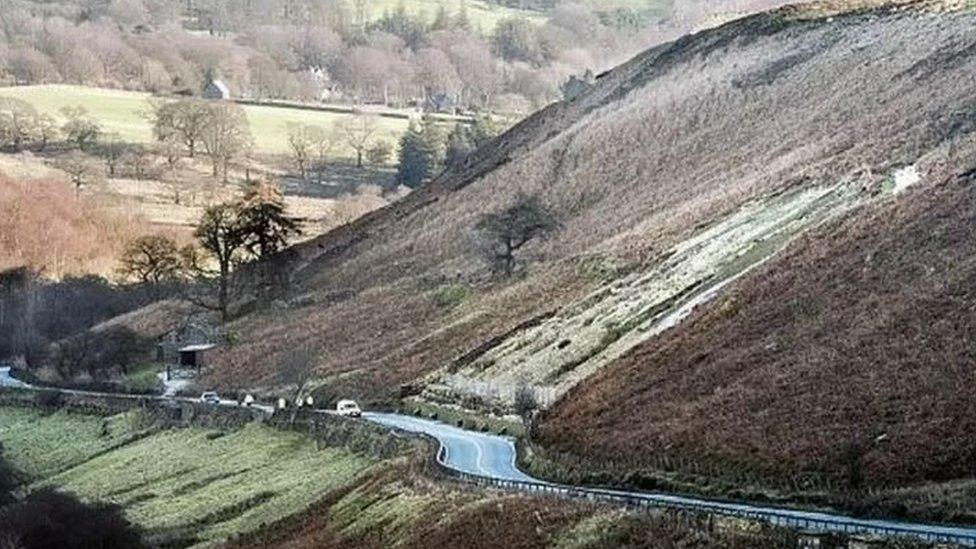Opening of 'unique' £68m bypass delayed until 2026
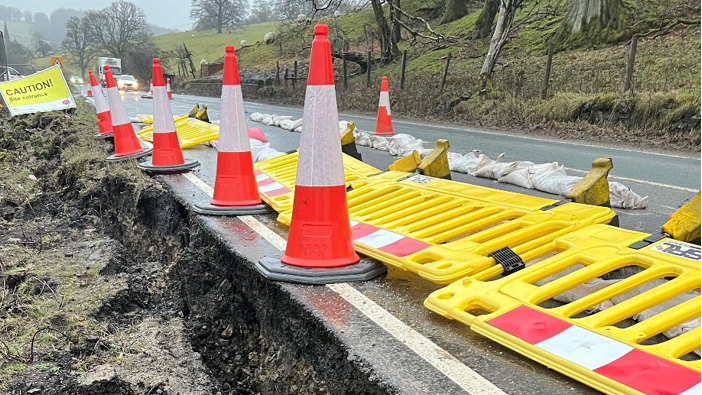
The existing route of the A59 at Kex Gill is prone to landslides resulting in closures
- Published
Completion of one of the biggest road-building schemes in the north of England has been delayed, North Yorkshire Council has confirmed.
The £68m Kex Gill bypass, near Blubberhouses, will replace a section of the A59 which has suffered 14 landslips since 2000.
The three-mile (4.8km) route across had previously been expected to be opened by late 2025 but that has now changed to spring 2026.
The council's Keane Duncan said the project was "unique, complex and expensive" and they were operating in some of the county's "toughest, most unforgiving terrain".
The road is a key east-west route linking Harrogate and Skipton, and provides a route across the North of England between junction 31 of the M6 and junction 47 of the A1(M).
Duncan, the council's executive member for highways and transport, said: "You can’t underestimate the complexity and scale of this project, it’s the single biggest highways project that North Yorkshire Council has ever been involved in and we’ll be relieved when it does open in spring 2026”.
"It is essential to make sure this key east–west route can remain open in the future," he added.
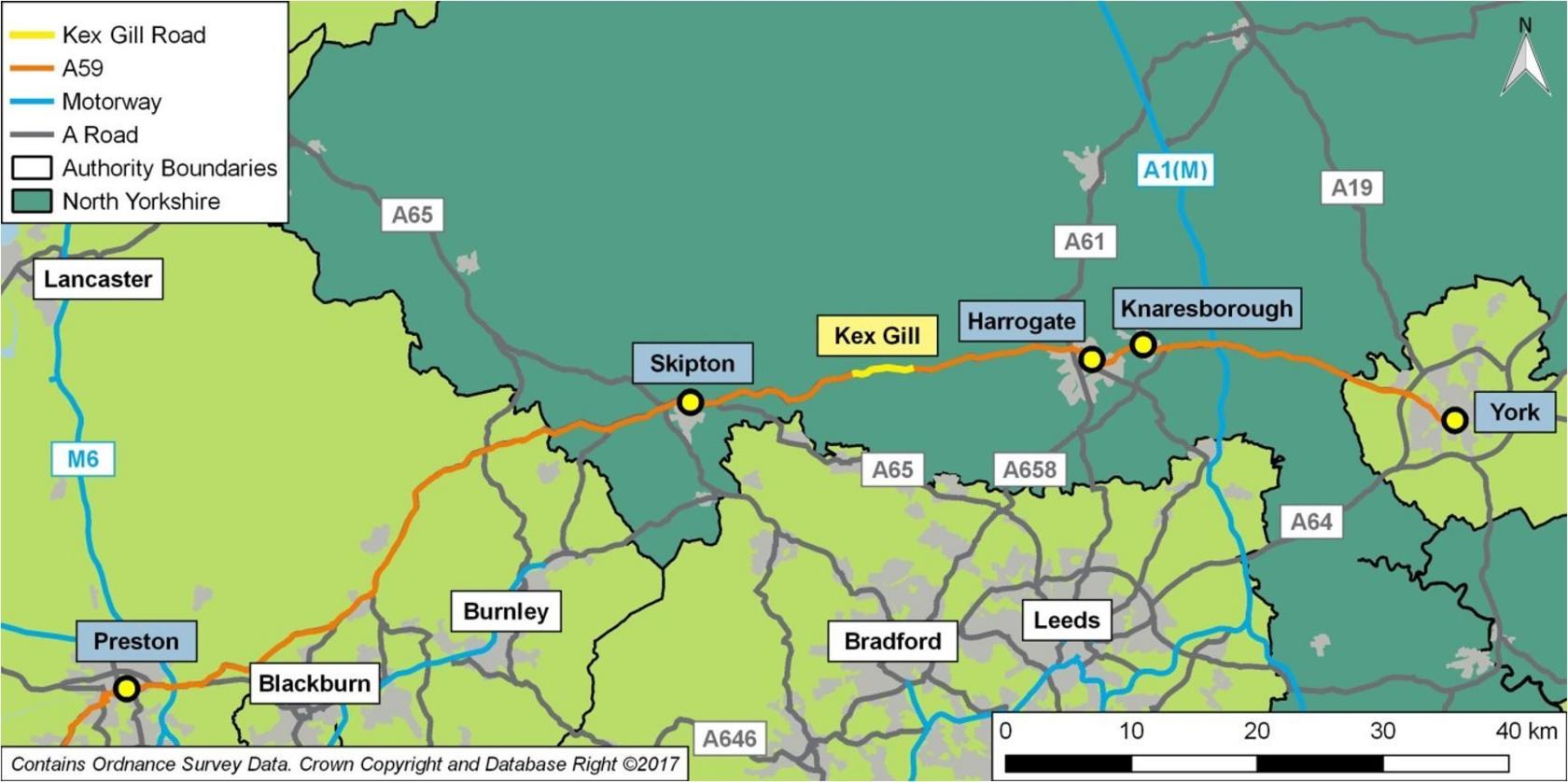
The A59 is a key route linking Harrogate and Skipton
The present A59 through Kex Gill is effectively falling away into a deep ravine, with a series of landslides forcing the route to be closed at regular intervals.
Those closures resulted in significant inconvenience for motorists and for residents in villages and towns in the area forced to make long diversions.
The most recent in February saw the road closed for four months and repairs, which included driving long sheets of steel into the ground to create a structural wall, cost £2m.
It was a short--term fix because the old road is expected to be closed completely in 2026 when the new route is up and running.
'Engineering achievement'
North Yorkshire Council said it had looked at the feasibility of retaining the old road as a cycle and bridleway but decided that the likelihood of more landslips meant that it would have been too costly to maintain.
Richard Binks, head of major projects at the authority, said: "The finished project will be the highway but there’s a massive off-road network as well, we are laying over five miles (8km) of new bridleways and dry-stone walling – it’s the biggest dry-stone walling job in the UK – so there’s going to be a fantastic network of off-road paths to mirror the engineering achievement”.
He said the council had taken special steps to relocate fish from ponds and install bat and bird boxes in the area, along with underpasses for badgers and otters so that they could find a safe route across the road.
The Department for Transport has provided £56m of funding for the scheme with the remainder coming from North Yorkshire Council.
Listen to highlights from North Yorkshire on BBC Sounds, catch up with the latest episode of Look North or tell us a story you think we should be covering here, external.
- Published3 June 2024
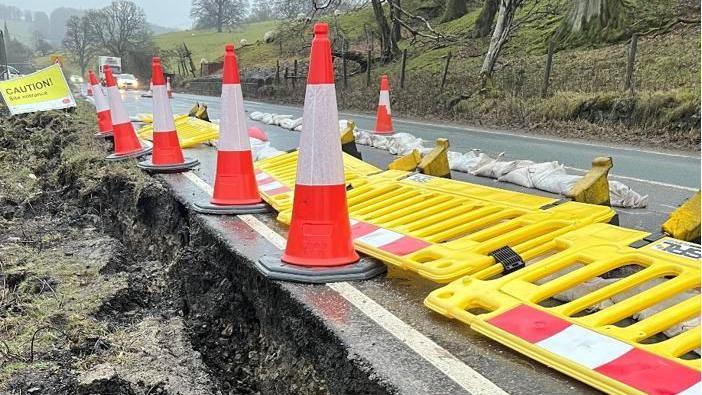
- Published28 April 2024
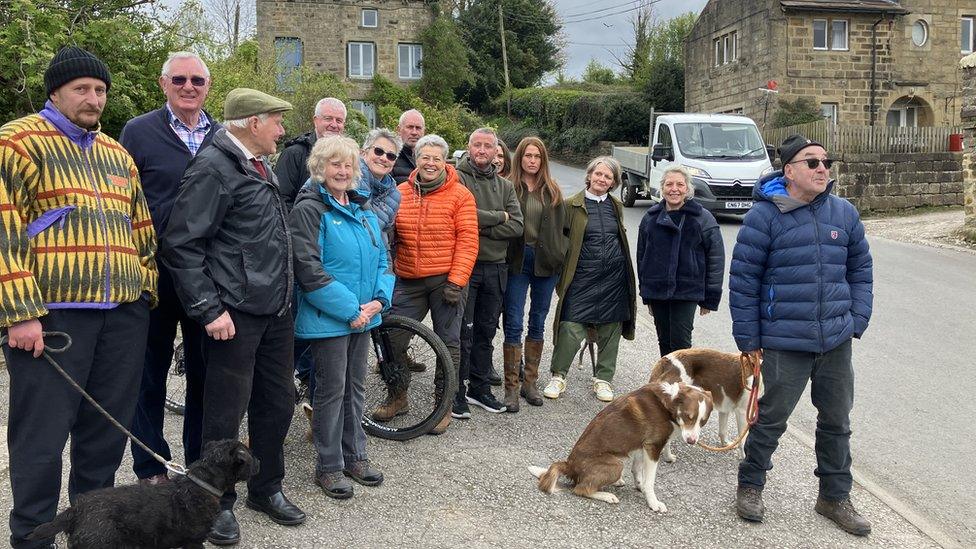
- Published23 February 2023
